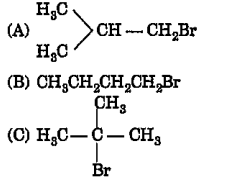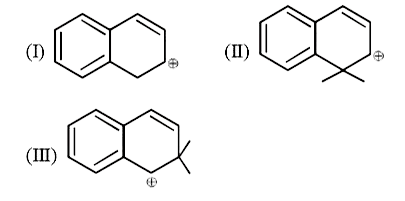Arrange the following substances in the increasing order of force of attraction between their particles :
Salt, water , nitrogen
To arrange the substances (salt, water, and nitrogen) in the increasing order of the force of attraction between their particles, we need to consider the physical states of these substances and the nature of the forces acting between their particles.
1. Identify the Physical States:
- Salt: Salt is a solid at room temperature.
- Water: Water is a liquid at room temperature.
- Nitrogen: Nitrogen is a gas at room temperature.
2. Understand the Forces of Attraction:
- In solids, the particles are closely packed and have strong forces of attraction between them. This results in a definite shape and volume.
- In liquids, the particles are still close together but can move past one another, resulting in weaker forces of attraction compared to solids.
- In gases, the particles are far apart and move freely, which means the forces of attraction between them are very weak.
3. Rank the Substances:
- Nitrogen (Gas): Weakest forces of attraction.
- Water (Liquid): Intermediate forces of attraction.
- Salt (Solid): Strongest forces of attraction.
4. Final Arrangement:
- Therefore, the increasing order of the force of attraction between the particles is:
- Nitrogen < Water < Salt
Final Answer:
Nitrogen < Water < Salt
- Salt: Salt is a solid at room temperature.
- Water: Water is a liquid at room temperature.
- Nitrogen: Nitrogen is a gas at room temperature.
- In solids, the particles are closely packed and have strong forces of attraction between them. This results in a definite shape and volume.
- In liquids, the particles are still close together but can move past one another, resulting in weaker forces of attraction compared to solids.
- In gases, the particles are far apart and move freely, which means the forces of attraction between them are very weak.
- Nitrogen (Gas): Weakest forces of attraction.
- Water (Liquid): Intermediate forces of attraction.
- Salt (Solid): Strongest forces of attraction.
- Therefore, the increasing order of the force of attraction between the particles is:
- Nitrogen < Water < Salt
Nitrogen < Water < Salt
Topper's Solved these Questions
- FOOTSTEPS TOWARDS(CBSE BOARD)Book:MTG IIT JEE FOUNDATIONChapter:FOOTSTEPS TOWARDS(CBSE BOARD)Exercise:SECTION-B
Explore 11 Videos
- FOOTSTEPS TOWARDS(CBSE BOARD)Book:MTG IIT JEE FOUNDATIONChapter:FOOTSTEPS TOWARDS(CBSE BOARD)Exercise:SECTION-C
Explore 15 Videos
- FOOTSTEPS TOWARDS (NEET)Book:MTG IIT JEE FOUNDATIONChapter:FOOTSTEPS TOWARDS (NEET)Exercise:QUESTIONS
Explore 44 Videos
- IS MATTER AROUND US PURE ?Book:MTG IIT JEE FOUNDATIONChapter:IS MATTER AROUND US PURE ?Exercise:OLYMPIAD/ HOTS CORNER
Explore 20 Videos
Similar Questions
Knowledge Check
Arrange the following in the increasing order of their bond order:
AO2,O+2,O−2andO2−2BO2−2,O−2,O2,O+2CO+2,O2,O−2,O2−2DO2,O+2,O−2,O2−2Arrange the following comounds in the increasing order densities.
 A(i)<(ii)<(iii)<(iv)B(i)<(iii)<(iv)<(ii)C(iv)<(iii)<(ii)<(i)D(ii)<(iv)<(iii)<(i)
A(i)<(ii)<(iii)<(iv)B(i)<(iii)<(iv)<(ii)C(iv)<(iii)<(ii)<(i)D(ii)<(iv)<(iii)<(i)Arrange the following compounds in the increasing order of their densities
 A(i)<(ii)<(iii)<(iv)B(i)<(iii)<(iv)<(ii)C(iv)<(iii)<(ii)<(i)D(ii)<(iv)<(iii)<(i)
A(i)<(ii)<(iii)<(iv)B(i)<(iii)<(iv)<(ii)C(iv)<(iii)<(ii)<(i)D(ii)<(iv)<(iii)<(i)
Arrange the following bases in increasing order of their basic strength
NH4OH,NaOH,Mg(OH)2,AI(OH)3
View SolutionArrange the following compounds in the increasing order of their densities

View SolutionArrange the following compounds in increasing order of their boiling

View SolutionArrange the following carbanions in increasing order of stability:

View SolutionArrange the following carbocations in the increasing order of their stability.

View Solution
